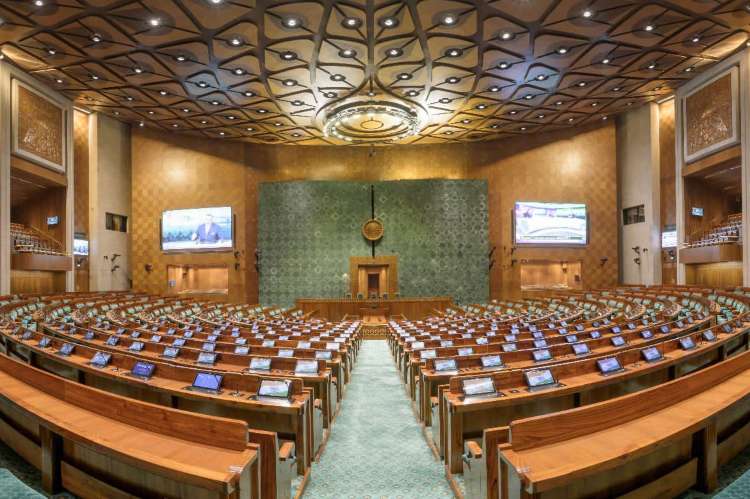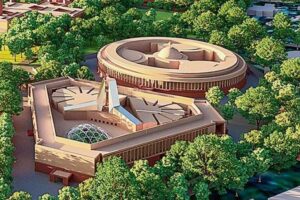
As the 2026 deadline for the long-pending delimitation of Lok Sabha constituencies approaches, a debate over regional representation has erupted, threatening to snowball into a raging political controversy. Originally conceived to ensure equitable representation in the Lok Sabha, delimitation seems to have become a contentious political strategy. Those who oppose the exercise see it as a tactical distraction by the ruling Bharatiya Janata Party from the growing unease over unemployment, caste relations, and rural distress in India’s heartland.
Delimitation, or the redrawing of Lok Sabha and state assembly constituencies, has not been undertaken in India since 2002. That exercise was based on population data from 1971 because of a freeze on seat redistribution enacted during the Emergency by Indira Gandhi’s government. The rationale at the time was to incentivise population control by protecting states that succeeded in curbing birth rates from losing political representation. Because of this freeze, the number of Lok Sabha seats has remained unchanged since 1976.
READ I India’s GDP growth prospects face global turbulence
Burden of demographic discipline
Four decades on, that compromise is fraying. Southern states — Tamil Nadu, Telangana, Kerala, Andhra Pradesh, and Karnataka have reaped the benefits of investing in education, public health, and family planning. The fertility rates in these states have fallen to levels comparable with those in developed nations. By contrast, north Indian states, particularly Uttar Pradesh and Bihar, have witnessed continued population growth, driven by slow progress on social development indicators.

The diverging demographic trajectories now threaten to upset the federal equilibrium. Projections suggest that Uttar Pradesh could see its Lok Sabha seat count surge from 80 to as many as 128; Bihar’s tally could jump from 40 to 70. In contrast, Kerala could lose a seat due to its near-zero population growth. Tamil Nadu, currently overrepresented by some estimates, could see a net loss of up to eight seats. These shifts would significantly alter the power dynamics in Parliament, rewarding populous states while penalising those that have governed better.
Delimitation plan – political strategy or reform
The timing of the debate is no coincidence. By igniting the delimitation debate in 2025, despite the fact that the 2021 Census is yet to be conducted, it seeks to feed into the sentiments in UP and Bihar that their population is underrepresented in national politics. This serves multiple strategic ends.

First, it allows the government to distract voters from economic discontent, and cushion anti-incumbency sentiments in the upcoming assembly election in Bihar. Second, it divides the INDIA opposition bloc, whose members are split geographically: southern parties such as the DMK strongly oppose the move, while some northern partners remain ambivalent. Third, it shifts the political discourse away from issues where the BJP is vulnerable — caste census demands, unemployment, and inflation — towards a polarising debate that it can control.
The party’s public messaging has been characteristically ambiguous. Union Home Minister Amit Shah has promised that no southern state would lose even a single seat. Yet without a detailed proposal, this assurance has rung hollow, especially amid broader moves by the Centre such as the withholding of education funds to Tamil Nadu.
Federal balance under threat
The deeper issue is not merely one of arithmetic but of fairness. Southern states that house about 20% of India’s population contribute disproportionately to tax revenues. There is strong resentment among southern states about the fiscal redistribution model that empowers the Union government to collect the bulk of revenue and to allocate funds based on need. Reducing the representation of these states in Parliament will further weaken their influence over national politics.
If the Union government pursues delimitation without consensus, it could push India towards a deep political crisis. The north-south divide may become more entrenched, threatening national unity. While the RSS, the ideological parent of the BJP, has dismissed the concerns of the southern states, its concerns over the divide was evident in its reaction.
Alternatives exist, but need political will
Increasing the strength of the Lok Sabha is both constitutionally desirable and politically prudent. The original constitutional ratio of one MP per 750,000 people will need a House with around 1,800 members. A more modest expansion to keep the Lok Sabha’s strength to below 1000 seats, as proposed by some experts, would allow for rebalancing without any state losing its current seat count. However, this will need wide consensus and more comprehensive parliamentary reforms.
An option is remodelling the Rajya Sabha on the US Senate to offer equal or capped representation per state, giving smaller and more progressive states a guaranteed voice. Such reforms will need constitutional amendments that require bipartisan consensus, but they are necessary to preserve the spirit of federalism.
There is also a need for reform in India’s fiscal architecture to allay the fears of southern and western states. This would mean greater decentralisation of revenue powers, enabling states to address local challenges while reducing their dependence on transfers from the Union government. Under the current dispensation, 60% of public spending is undertaken by state governments, which control less than 40% of the revenue generation.
Towards a consensus-driven democracy
It is incumbent upon all political parties to rise above the temptation of short-term gain. The onus is greater for the ruling BJP. As the largest party in both the Houses, it should not engage in cynical attempts to capture power that endanger the principle of unity in diversity. The opposition parties in the INDIA alliance should not build a counter strategy that opposes fair representation. Their narrative must be rooted in development, governance, and shared prosperity.
Delimitation is an important part of representative democracy. But if wielded cynically, it could lead to the destruction of India’s federal polity. Any attempt to redraw Lok Sabha constituencies should ensure balance, equity, and trust among all regions.
India cannot afford the impression that the Union government is out to strangulate better performing states, both fiscally and politically. It must ensure that every state is treated equally and fairly while distributing power and resources. Anything short would be unjust, and ultimately, unsustainable.
